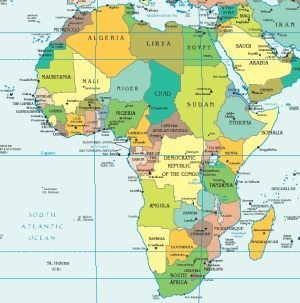 Philosophy is the science that deals with answering the great questions that reveal to man how to be the origin of the universe or of man, the meaning of life, among others, in order to achieve wisdom and all this will be achieved through the implementation of a coherent and rational analysis that will consist of the approach and the answer to any question that occurs to us, for example, what is man, what the world, what can I know, what I can hope for such a thing.
Philosophy is the science that deals with answering the great questions that reveal to man how to be the origin of the universe or of man, the meaning of life, among others, in order to achieve wisdom and all this will be achieved through the implementation of a coherent and rational analysis that will consist of the approach and the answer to any question that occurs to us, for example, what is man, what the world, what can I know, what I can hope for such a thing.
Understanding the history of the term and the leading minds
In relation to the origin of this discipline (and relying on what Isocrates, a contemporary of Plato, maintained at the time), philosophy had its birth in Egypt, although they would be those great thinkers of the golden age of Ancient Greece, such as Socrates, Plato and Aristotle who have stood out the most in the various philosophical debates that arose at that time; for them, the reason for philosophizing was due to the astonishment that some circumstances generated.
The important contribution of Saint Thomas Aquinas stands out, who sought to systematize Aristotle's philosophy within the framework of Christian thought.
Then, in modern times, René Descartes would come to expand the bases with his methodical doubt as a method of answering the great questions of humanity and Jaspers, who in a place of opposition to all of these, imposed philosophizing from the succession of extreme situations such as death. And of course, the long list continued through history with Kant, Hegel, Marx and Wittgenstein, among the most prominent.
Branches that emerge from philosophy: metaphysics, epistemology, ethics, aesthetic logic
So, by not dealing with a single topic, but with several, philosophy It is divided into several branches that will be especially concerned with responding to specific problems.
So for example the metaphysics deals exclusively with being, its principles, foundations, causes and properties, gnoseology, on the other hand, of knowledge, its nature, scope and origin, the ethics, of morality and human action; the esthetic, of the essence and perception of beauty and finally the logic that tries to shed light on the correct reasonings and those that are not.
In addition to these diverse branches that focus on philosophy on various aspects of human knowledge, there are philosophical schools that emerged from the various great cultures of the Earth. Thus, it is possible to point out that, in addition to our recognized Western philosophy, the civilizations of Asia have given rise to great philosophers with less or greater repercussion in the current times of globalization. Both China and India have contributed existential lines of thought. In the same way, the great religions, especially Christianity, have contributed complete philosophical schools of varied impact on modern thought, on many occasions exceeding the specific framework of each of these religions.
Far from being a science reserved for the "chosen" or specific scholars, philosophy is an open discipline intended for the general public.
Like other variants of modern sciences, the diffusion of the general concepts of philosophy through scientific popularization is the most appropriate way to convey this knowledge to all interested parties.
The subjective component of The philosophy and, consequently, due to the possibility of not respecting the proper systematization of the sciences. However, despite the fact that personal experience and previous knowledge are pillars for the study and deepening of this discipline, philosophy is not exempt from the rigor that it is worth applying to all the social and human sciences; In this context, there are numerous points in common with sociology, psychology and other similar branches.
But despite the divisions, which find their meaning only in a practical and ordering issue, philosophy, in that typical characteristic of constant inquiry, will actually be the one that will provoke each of these questions, aimed at achieving a broader vision. and contextual of the human being in his personal, biological and social environment.









